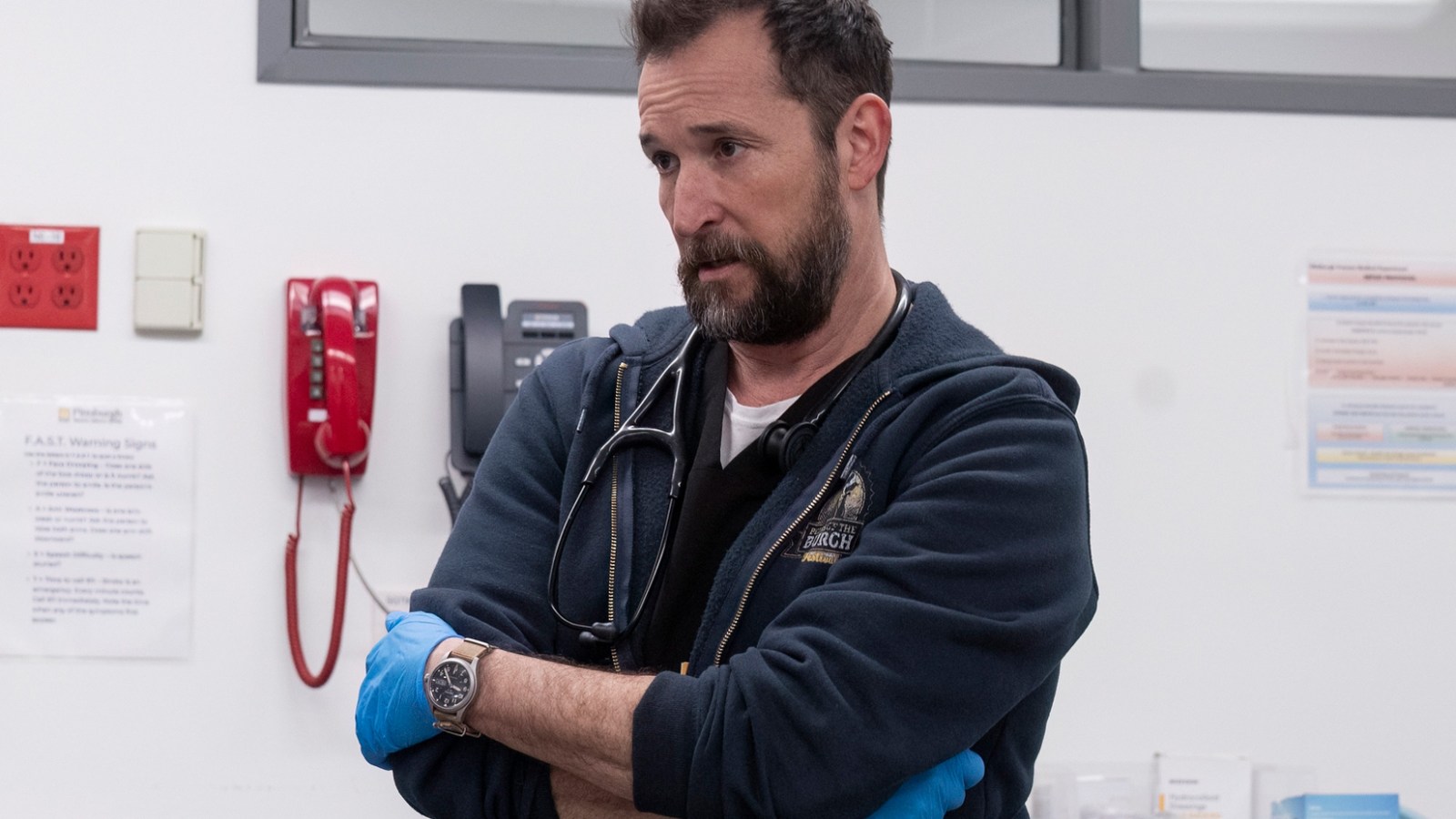Noah Wyle’s wildly popular hospital drama *The Pitt* is “not derivative” of his former show *ER*, so a judge’s ruling last February that allowed a breach of contract lawsuit to proceed against Warner Bros. TV, Wyle, and his co-producers sets a “terrible precedent” and should be overturned, a new appeal brief argues.
Wyle and his co-defendants filed their lengthy brief in California’s Second Appellate District minutes before the 11:59 p.m. deadline on Monday. Over 71 pages, they double down on their position that *The Pitt* is an “original and innovative” drama that’s “intentionally different” from *ER* in all the ways involving protectable intellectual property.
They claim the lower court judge “erred” in rejecting their prior dismissal motion, known as an anti-SLAPP.
For her part, Crichton claims the 1994 contract states that any sequels, remakes, spin-offs, or other “derivative works” linked back to *ER* would require “mutual agreement” from all parties, including Crichton’s estate, before reaching viewers.
“Plaintiff’s attempt to use a narrow contract term to seize control over any emergency medical drama defendants might work on is an outright assault on free expression, and a terrible precedent for California’s film and television industry,” the new appeal brief obtained by *Rolling Stone* reads.
“If this suit is not dismissed pursuant to defendants’ anti-SLAPP motion, *The Pitt*’s creative team will be forced to do their work under the threat of liability and with the constant distraction and expense of litigation and discovery.”
—
In her lawsuit filed August 28, 2024, Crichton accused WBTV of breaching the 1994 contract. She further accused Wyle and his production team of contract interference.
The defendants fought back, saying that when they tried but couldn’t reach an agreement with Crichton on terms for a proposed spin-off, they decided to cut ties and create something entirely new.
With their anti-SLAPP motion, they asked the court to reject the lawsuit at its earliest stage on the basis that it was targeting their right to free speech with frivolous claims.
When the judge sided with Crichton, stating the lawsuit had shown enough “minimal merit” to at least proceed to discovery, the defendants launched their appeal, placing the underlying case on pause.
—
### Defendants’ Appeal Arguments
The new Monday filing offers the first detailed glimpse at the defendants’ appeal arguments.
They say if Crichton has her way, “the highly resonant, award-winning, cultural phenomenon that is *The Pitt* would not exist.”
The filing claims the widow “demanded many millions of dollars in connection with the new *ER* series well above industry standard rates, and more than WBTV was willing or able to pay for a series in its first year,” so they were “unable to reach an agreement.”
Once negotiations failed, showrunner R. Scott Gemmill, who previously worked on *ER*, wrote a new script that “did not use or have any connection to *ER* intellectual property.”
The filing notes that *The Pitt* takes place in the emergency department of a hospital in Pittsburgh, while *ER* was set in Chicago. *The Pitt* also is based on a completely new cast of characters, and each of its one-hour episodes corresponds with a single hour of a 15-hour emergency department shift, “a concept never before used in a medical drama,” the appeal states.
While *ER* was more “soapy,” with storylines following characters outside the hospital, *The Pitt* is “more focused on serious issues plaguing the modern medical field, and the characters almost never leave the emergency department,” the filing argues.
“Whereas *ER* was a music-driven show, *The Pitt* has no music score,” it adds.
—
“The mere fact that some defendants thought about making a show that would have been based on *ER* if it had been made does not prove that the different show they ultimately did make is also based on *ER*,” the filing argues.
“The only evidence in the record was that defendants wrote *The Pitt* to be intentionally different from *ER*, and other medical dramas.”
While it was true the defendants shared a script treatment for a possible *ER* reboot that proposed episodes transpiring in real-time and plotlines addressing the aftermath of COVID, “these concepts did not come from *ER* — they were new ideas proposed by defendant R. Scott Gemmill in a reboot treatment he created over a decade after *ER* last aired,” the appeal says.
“There is no legal reason why he would not have been free to incorporate those same original ideas into a different project, *The Pitt*, after the proposed reboot fell through.”
“The right to prevent production of ‘derivative works’ of *ER* does not give plaintiff ownership over Gemmill’s own original ideas.”
—
The appeal calls the lawsuit “baseless” and accuses Crichton of “misusing the judicial system to try to shut down important speech because [she] couldn’t reach a deal she liked, even though *The Pitt* does not use a single protected element from *ER*.”
In asking the appeals court to overturn the trial court’s ruling, lawyers for the defendants wrote that the prior judge failed to apply the “well-settled meaning” of “derivative works” under the law.
https://www.rollingstone.com/tv-movies/tv-movie-news/the-pitt-noah-wyle-appeal-crichton-er-hospital-drama-1235456449/


